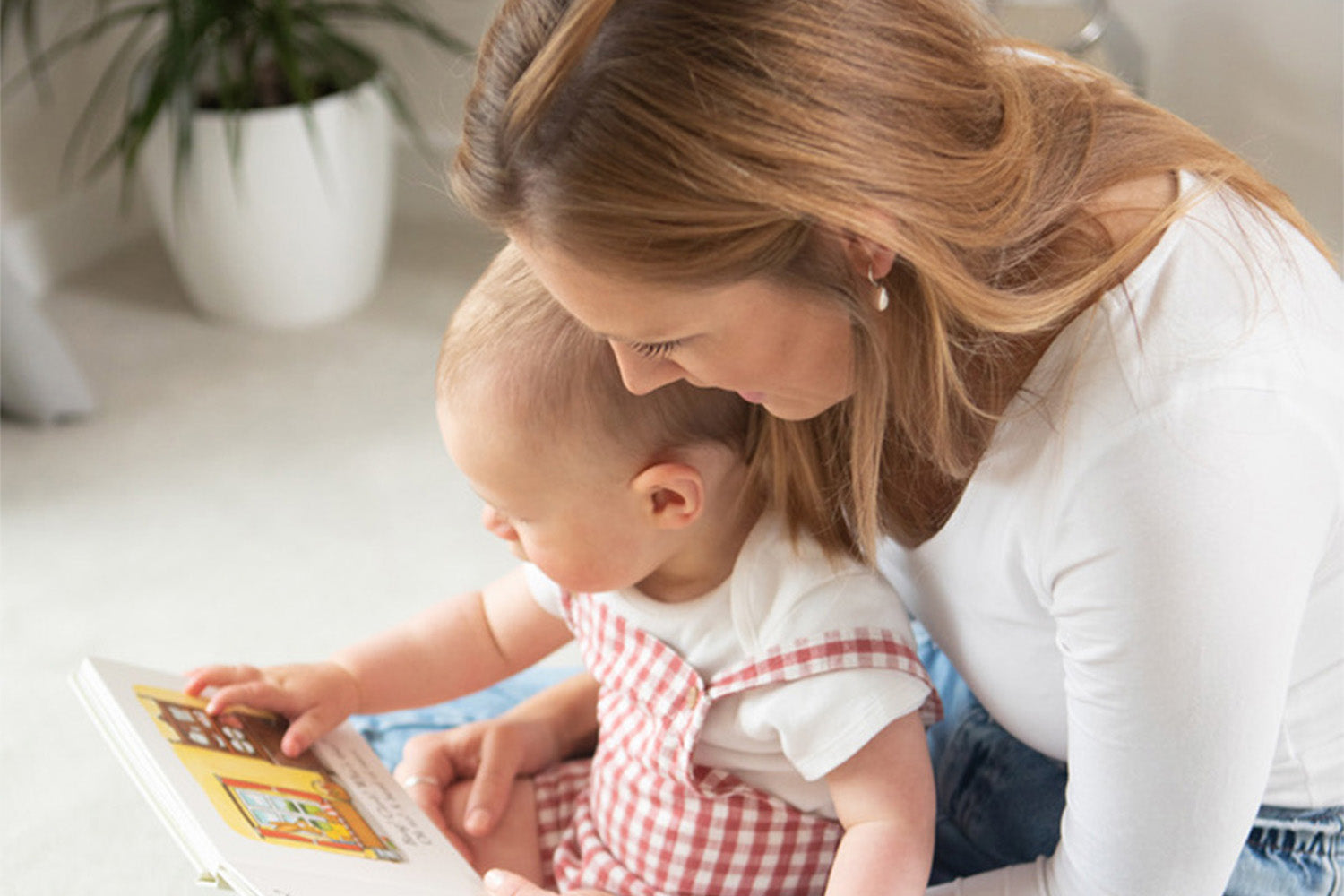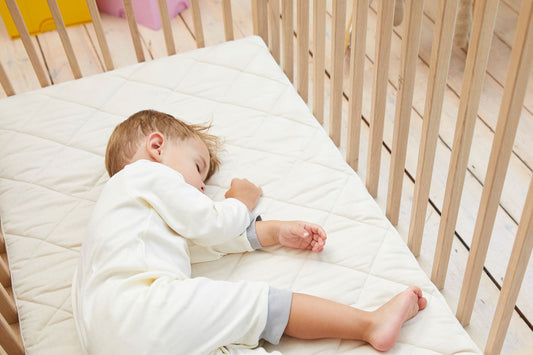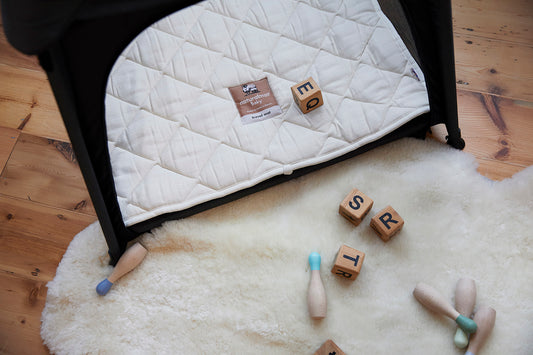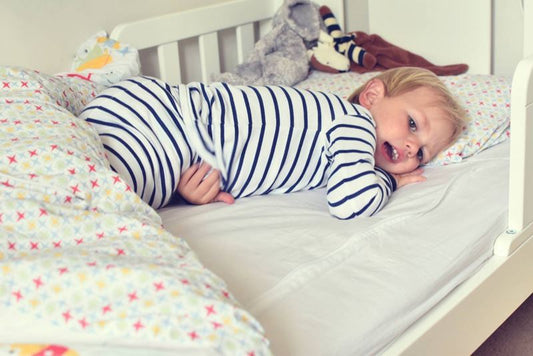Following our day of 1:1 virtual child sleep consultations in collaboration with early years consultancy NEST, we've asked founder Lucy to put together the top three sleep questions asked by parents. The top three questions focus on sleep cycles, self-settling, and night-time waking.
Please know that every parent, baby and family unit's own circumstances are perfectly unique - and there's no one right way of navigating child sleep! However, we hope that by answering these questions, we might be able to help you with your little one's sleep journey.

1. Why does my baby struggle to self-settle after waking during the night?
When we hear this question, we usually ask in response: how is baby getting to sleep in the first place? Are you feeding them to sleep, are they being rocked to sleep, or do they use a dummy?
It's worth being aware of how your little one is getting to sleep. The way that a baby falls asleep at bedtime is the way that they will want to fall asleep when they naturally wake from a sleep cycle. Are they struggling to self-settle because they want you to feed them back to sleep? Do they want to be rocked to sleep again? Has their dummy fallen out?
Once you are aware of your little one's sleep cues, it's much easier to support them with self-settling. There are many ways in which this can be done but please be rest assured that we would not suggest leaving your little one to cry. If you'd like to find out more about self-settling, take a look at our post on Three Ways to Practise Self-Settling.
Consistency is absolutely key, so once you have identified a reliable sleep cue, it will be much easier to support your little one with self-settling to sleep with a different sleep cue whilst remaining consistent.

2. Why does my baby seem to wake at the same time every night?
Despite the popularity of the phrase 'sleep like a baby', not all of a baby's night is spent in deep slumber. For example, in young babies, each sleep cycle is made up of active sleep (where they move around and grunt), and quiet sleep (where they sleep deeply). If baby's bedtime is roughly the same time every night, it may be that they're naturally waking up at around the same time as part of their sleep cycles.
Although waking is a natural part of a baby's sleep cycle, it can be helpful as a parent to understand why they're waking up. Are you disturbing them when you go to bed (if they are still in the same room as you, or a room next door)? Are they cold? Is their room near a boiler or hot water tank? Does a neighbour pull into the drive at around the same time every night?
With this in mind, if you can predict when they're going to wake, resettle them just before they stir - this will put them into a new sleep cycle. For example, this could become a part of your own bedtime routine.

3. Why does my baby wake between every 45 minutes to an hour?
Broadly speaking, a sleep cycle can last anywhere between 30 and 60 minutes. So, baby will be waking up, on average, between every 45 minutes to an hour - and this is completely normal. However, we don't have to wake up and resettle them as often if we can teach baby to self-settle.
A sleep cue is something that your little one associates with going to sleep. This could be being in a dark room, a story before bed, sucking their thumb, having a milk feed, being rocked to sleep, etc.
If baby is used to falling asleep at bedtime with your help, then they will look for this sleep cue when they wake up from their natural sleep cycles. Therefore, it's worth being aware of how your little one is getting to sleep. Are they waking up frequently throughout the night because they are needing you to support them with finding their sleep cue?
Once you are aware of what their sleep cues are, then the task of supporting and teaching them to self settle is made much easier. This will ensure that baby is able to settle themselves back to sleep when they wake up from a sleep cycle during the night (which is a very normal process).
There are many ways in which this can be done but please be rest assured that we would not suggest leaving your little one to cry.

About NEST
NEST is an Early Years Consultancy supporting you and your family from pregnancy right through to when your little one starts school. With a team of highly qualified consultants, NEST can support you from packing a hospital bag and preparing for the arrival of your baby, to infant feeding, weaning, sleep, toilet training, managing emotions, and so much more - either as a 1:1 consultation or through one of our workshops.
With a passionate team who ensure that you feel heard, supported and empowered, we work alongside you to offer advice and support which works for you and your little one.







